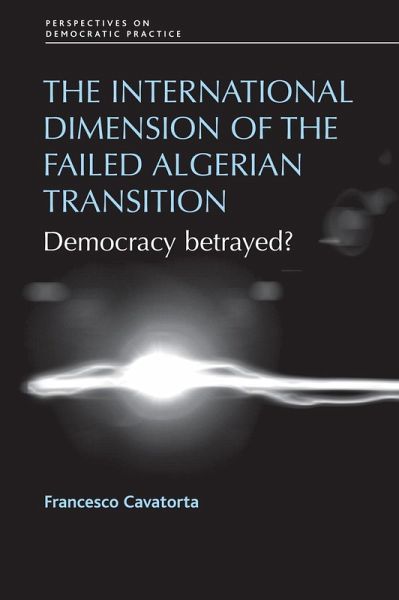
The international dimension of the failed Algerian transition (eBook, ePUB)
Democracy betrayed?

PAYBACK Punkte
29 °P sammeln!
This book examines the importance of international factors in determining the initiation, development and outcome of transitions to democracy. More specifically, the book analyses the failed Algerian transition in light of its international environment explaining the failure through a complex relationship between domestic and external actors.
Dieser Download kann aus rechtlichen Gründen nur mit Rechnungsadresse in A, D ausgeliefert werden.













